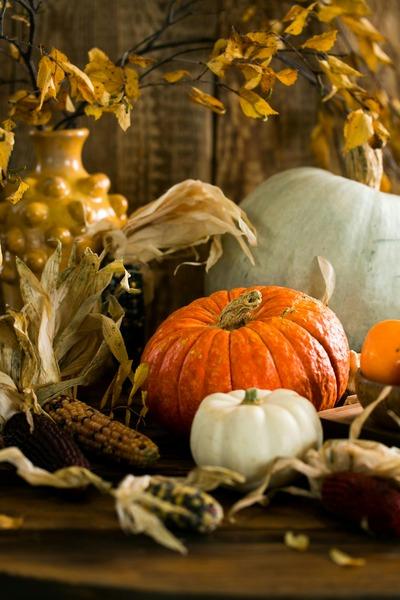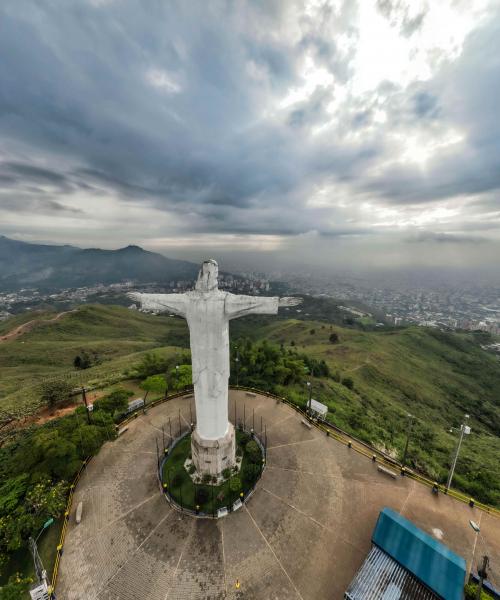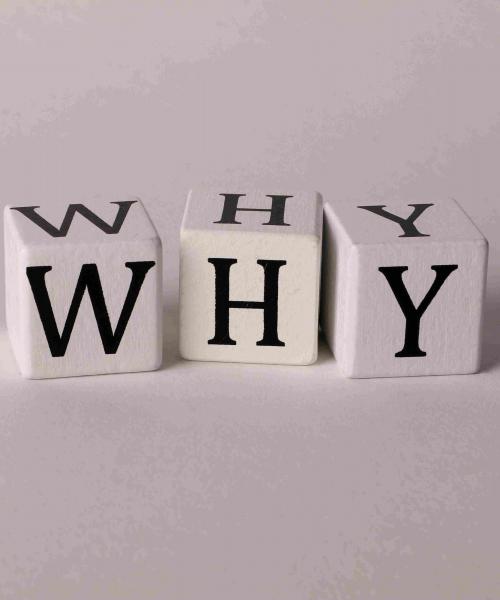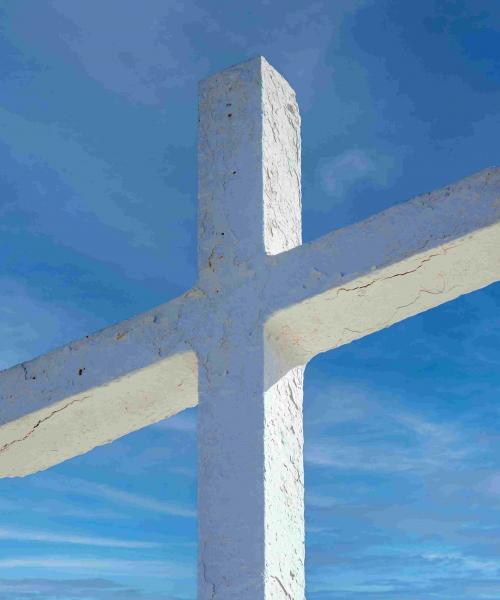
Gratitude that Heals
Luke 17:11-19
Thanksgiving Sunday October 12, 2025
Rev. Heather Carlson, St. John’s Presbyterian Church
What to preach at Thanksgiving when the world feels like it’s unraveling? When war, poverty, and anxiety fill the headlines... when people come to worship carrying fear, grief, or uncertainty... is there still space to talk about gratitude?
I wondered… is gratitude enough for a time like this.
Yet I was reminded that St. Augustine said, “Gratitude is the beginning of faith.” And faith roots us in the powerful, purposeful, loving story of God, who is our Shepherd and provider of all our needs.
Gratitude heals. We see that truth unfold in our Gospel reading this morning. Let’s look again at this encounter between Jesus and the ten men with leprosy, and let it guide us into a deeper understanding of thanksgiving that’s not just seasonal, but transformational.
Gratitude Begins with Need
Luke tells us: “As [Jesus] entered a village, ten men with leprosy stood at a distance, crying out, ‘Jesus, Master, have mercy on us!’” (v.12–13)
These men were desperate. They lived outside the community, isolated and untouchable. Leprosy meant they were both physically ill, but also declared “unclean” - a threat to the social and religious fabric of the day. Their cry—“Have mercy on us”—is not just a plea for healing. It is the voice of people who know they need help. And here is a spiritual paradox: gratitude starts with need.
When we forget our need, we forget to give thanks.
A quick example illustrates this: in the first five minutes of waking I can easily take for granted:
-
my warm, comfy bed
-
the quiet and safety of the neighbourhood
-
the ability to rise from bed on my own two legs
-
the clean water in sink and shower
-
the hygienic advantage of sewage system
-
the skilled labour of electricity crews
-
the sacrifice made by those who sewed the clothes I wear
-
the supply of food in my fridge
-
and the list could go on and on and on
Without acknowledging my need for: warmth, safety, health, clean water, hygiene, interdependence, food... I am likely to breeze past all of those gifts without a split second of gratitude. But when I allow myself to pause… to slow down... when I am intentional in prayer to see the needs I have... I am able to recognize how much I’ve already received AND to make space to give thanks for the mercy of Christ to meet my needs that remain unmet.
The warning given to the Hebrew people after being freed from slavery. “Beware that in your plenty, you do not forget the Lord your God…” (Deuteronomy 8:11)
In our culture of wealth, we often live under the illusion of self-sufficiency. We might assume we have a right to health, happiness, and comfort. We work and hope to afford necessities, conveniences and luxuries.
But creature comforts and independence can dull our awareness of grace. Thanksgiving requires us to slow down—to remember that we are, every day, in need of God’s provision and mercy.
Part of building our gratitude is to be willing to acknowledge our needs (met and unmet) and to bring them to God, "Jesus, Master, have mercy on us." As the awareness of our needs grows, so will our gratitude.
Scripture often calls thanksgiving a sacrifice. Why? Because it costs us something:
-
It costs us pride—we acknowledge we didn’t do it all ourselves.
-
It costs us control—we trust God even when life isn’t perfect.
-
It costs us time and attention—we stop long enough to remember.
Giving Thanks Requires Intentionality and Direction
In Luke 17:14, Jesus says:
“Go, show yourselves to the priests.” And as they went, they were cleansed.
Only one man comes back.
“He fell to the ground at Jesus’ feet, thanking him for what he had done.” (v.16)
Ten were healed, but only one returned. He interrupted his priorities, redirected his steps, and made space to give thanks.
And here’s the point: Gratitude doesn’t happen by accident. Like this man, we must choose to give thanks—to carve out time, change direction, and make room for God.
This weekend there is a lot of emphasis on what's on the table. Many may give thanks to the cook, or friends and family that travelled, for food and fellowship. Those are good gifts, and it is good to give thanks.
But the man in the gospel didn’t just say “thank you” to the priest or his family or the other nine. He returned to the source—to Jesus. Faith filled thanksgiving lifts our eyes off of what to who. James 1:17 instructs us that “Every good present and every perfect gift comes from above, from the Father who made the sun, moon, and stars. The Father doesn't change like the shifting shadows produced by the sun and the moon. (James 1:17)
Gratitude Leads to Wholeness
Jesus asks the man, “Were not ten healed? Where are the other nine?”
One author posits some answers to Jesus' question: where are the other nine?
One felt too tired to walk all the way back to Jesus.
One waited to see if the healing would last.
One said he would see Jesus later.
One decided that he had never had leprosy.
One said he probably would have gotten well anyway.
One thought about going back but wasn’t sure he had the right words.
One gave thanks to the priests.
One was so pleased he immediately rushed off to tell his family.
One said, “Any rabbi could have done it.”
How painfully familiar. How easy it is to dismiss, deny, belittle, or rush on by. But this encounter with Jesus shows us another way. A reflective moment that so that thanksgiving is given a space to bubble up and grow.
Then Jesus says:
“Your faith has made you well.” (v.19)
That phrase—“made well”—comes from the Greek word sozo. It can mean healed, saved, made whole.
All ten were physically healed. But only one returned in faith—and it was that faith that brought full healing. A healing that reached deeper than skin... into soul, relationship, and life.
This is what gratitude does. It completes the circle of grace. It moves us from receiving a gift to being transformed by it.
Even though God is worthy of our thanksgiving for His own sake, He has also designed it to be a blessing to us:
-
Thanksgiving saves us from foolishness. Romans 1:21-22 Yes, they knew God, but they wouldn’t worship him as God or even give him thanks. And they began to think up foolish ideas of what God was like. As a result, their minds became dark and confused. 22 Claiming to be wise, they instead became utter fools.
-
Thanksgiving counteracts bad habits. Eph 5:4 Obscene stories, foolish talk, and coarse jokes—these are not for you. Instead, let there be thankfulness to God.
-
Thanksgiving brings peace. “Do not be anxious about anything,” says Philippians 4, “but in everything, by prayer and petition, with thanksgiving, present your requests to God. And the peace of God… will guard your hearts.”
Not only is God the right direction for gratitude, but gratitude directed toward God brings us into His presence. Enter His gates with a song of thanksgiving And His courts with praise. Be thankful to Him, bless and praise His name. Psalm 100:4
Some years ago, my mentor in prayer encouraged our group to not only see this as an action, but a promise. When we give thanks to God, we’re not just being polite—we’re stepping into holy ground. To begin daily prayer with gratitude supplies the connection to God. And on the days when God feels distant that simple practice often opens the gate.
When we give thanks—even while we’re still waiting—we turn our eyes from the problem to the Provider. We remember what He’s already done... and we begin to trust Him again.
And that is enough. It is in fact what the world needs. Few of us will be called to impact the world stage, but all of us are called by God to live faithfully with the people, situations and responsibilities given to us.
So whether you’ve had a handful of Thanksgiving invitations, or none, I want us to consider Jesus’ Thanksgiving Invitation. Offer a sacrifice of thanksgiving each day.
Not because everything is perfect, but because God is still good. Start your prayers with a list of thanks—even a small one—and let that be your way into the courts of the Lord. Thanksgiving is not just a holiday— it’s a spiritual practice that roots us in faith, and ultimately, in the healing presence of Jesus.
 St. John's
St. John's




